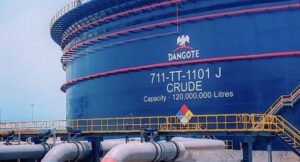
Port Harcourt Refinery resumes petrol loading
After a week of inactivity, the Port Harcourt Refining Company has resumed the distribution of Premium Motor Spirit (PMS), commonly known as petrol.
The refinery had unexpectedly halted its petrol loading operations two weeks ago, with no immediate explanation provided for the shutdown, leaving many marketers stranded.
A visit by our reporter to the Port Harcourt Refinery Depot last Thursday revealed an unusually quiet scene. The loading bay appeared empty, with no activity following the disruption of operations in the previous week.
In a statement, the Chief Corporate Communications Officer of the Nigerian National Petroleum Company Limited (NNPC), Olufemi Soneye, assured that preparations for the resumption of loading operations were underway.
By Monday, however, it was confirmed that petrol loading had resumed, with 11 trucks seen filling up at the depot. Despite this, the facility had not fully returned to normal operations. There was little to no activity at the site until around 1 pm, when operations began to pick up.
At 1:14 pm, trucks started entering the 18-arm loading bay, and by 2 pm, seven trucks had arrived and begun loading. Two of the trucks were already transporting petrol, while a fire service truck was stationed at the site as a precaution against any potential fire hazards.
The first truck began loading at 1:18 pm, with a total of 10 trucks having completed their loading by 4:30 pm. This suggested that more trucks were likely to be loaded before the day’s end.
While trucks were actively loading petrol, seven other cleared vehicles were waiting to enter the depot via the Onyema gate, located next to the loading bay, when our reporter left in the evening.
Some marketers at the old Port Harcourt Refining Company, established in 1963, voiced their frustration over the frequent shutdowns of operations without any clear explanation. They also expressed dissatisfaction with the current state of the facility, noting that of the 18 arms in the loading bay, only three were operational, with the others still uncalibrated.
One marketer, who identified himself as Liti, said, “We are not happy with the situation here. If the operation was running properly, this place would be full of trucks, and they could load up to 50 trucks before 6 pm.”
He added, “We urge the government to come and assist in ensuring that the refinery is functioning properly.”
It was also reported that not all of the loading arms were in use for petrol distribution. Some were intended for the loading of kerosene and diesel, but production of these products has not yet resumed at the refinery.




